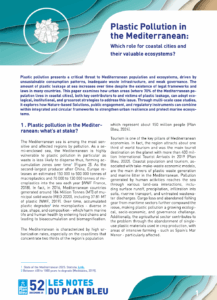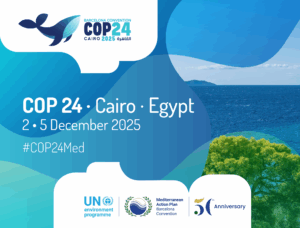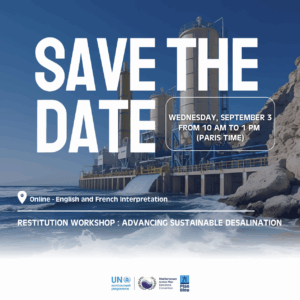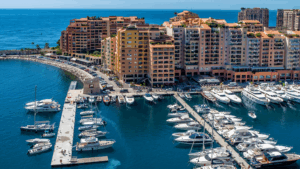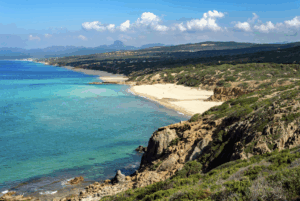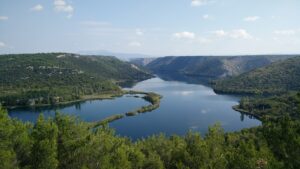
- Plan Bleu
Plan Bleu's missions
Make the Mediterranean a cooperation area for sustainable development
- themes
- projects
- Ressources
- publications
- Events
In the news
Last events
- Plan Bleu
Plan Bleu's missions
Make the Mediterranean a cooperation area for sustainable development

Providing socioeconomics insights for the appropriate management of Mediterranean resources

Facilitate a science – political and civil society interface

Supporting the transition towards a green and blue economy

Design possible futures for sustainable development

Observer of the environment and development to inform governments and the general public
- themes
- projects
- Ressources
- publications
- Events
In the news
Last events

Who we are
Plan Bleu: making the Mediterranean a space for cooperation towards sustainable development
For more than 40 years, Plan Bleu has been producing studies and future scenarios to raise awareness among Mediterranean stakeholders and decision-makers about the region’s environmental and sustainable development issues.
Our missions

Providing socioeconomics insights for the appropriate management of Mediterranean resources

Facilitate a science – political and civil society interface

Supporting the transition towards a green and blue economy

Design possible futures for sustainable development

Observer of the environment and development to inform governments and the general public
News
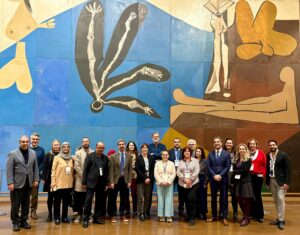
Water Security and Resilience in Mediterranean Coastal Zones
On 12 February 2026, UNESCO headquarters in Paris hosted the 6th Steering Committee meeting of the MedProgramme project focused on Mediterranean coastal zones, with an emphasis on water security, climate resilience, and habitat protection.
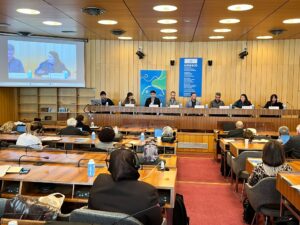
Plan Bleu at the UNESCO International Symposium “Coastal Aquifers, Sustainable Futures”
On 10 and 11 February 2026, UNESCO Headquarters in Paris hosted the International Symposium “Coastal Aquifers, Sustainable Futures”, dedicated to the future of coastal aquifers in the face of climate and anthropogenic pressures. On this
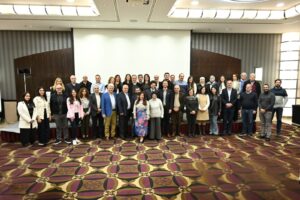
Strengthening Integrated Coastal Zone Management in Lebanon: Highlights from the 3rd Multi-Stakeholder Consultation in Beirut
From 3 to 5 February 2026, Plan Bleu organized the 3rd multi-stakeholder consultation in Beirut, Lebanon, dedicated to Integrated Coastal Zone Management (ICZM) and the Damour area, within the framework of the MedProgramme.The meeting aimed
In the news
Last publications
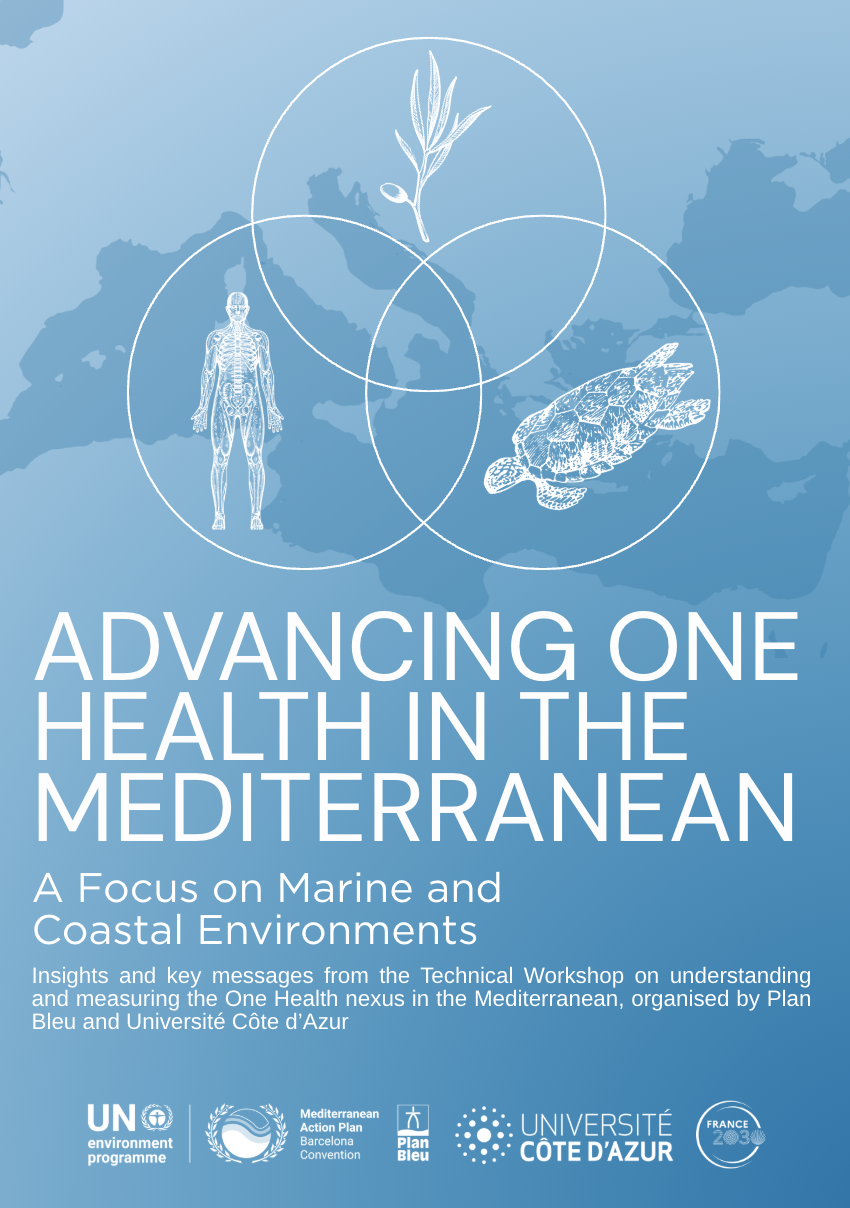
Advancing One Health in the Mediterranean
This report explores the application of the One Health approach in the Mediterranean, with a specific focus on marine and coastal environments, where interactions between human, animal and ecosystem health are particularly strong. Based on …
Read more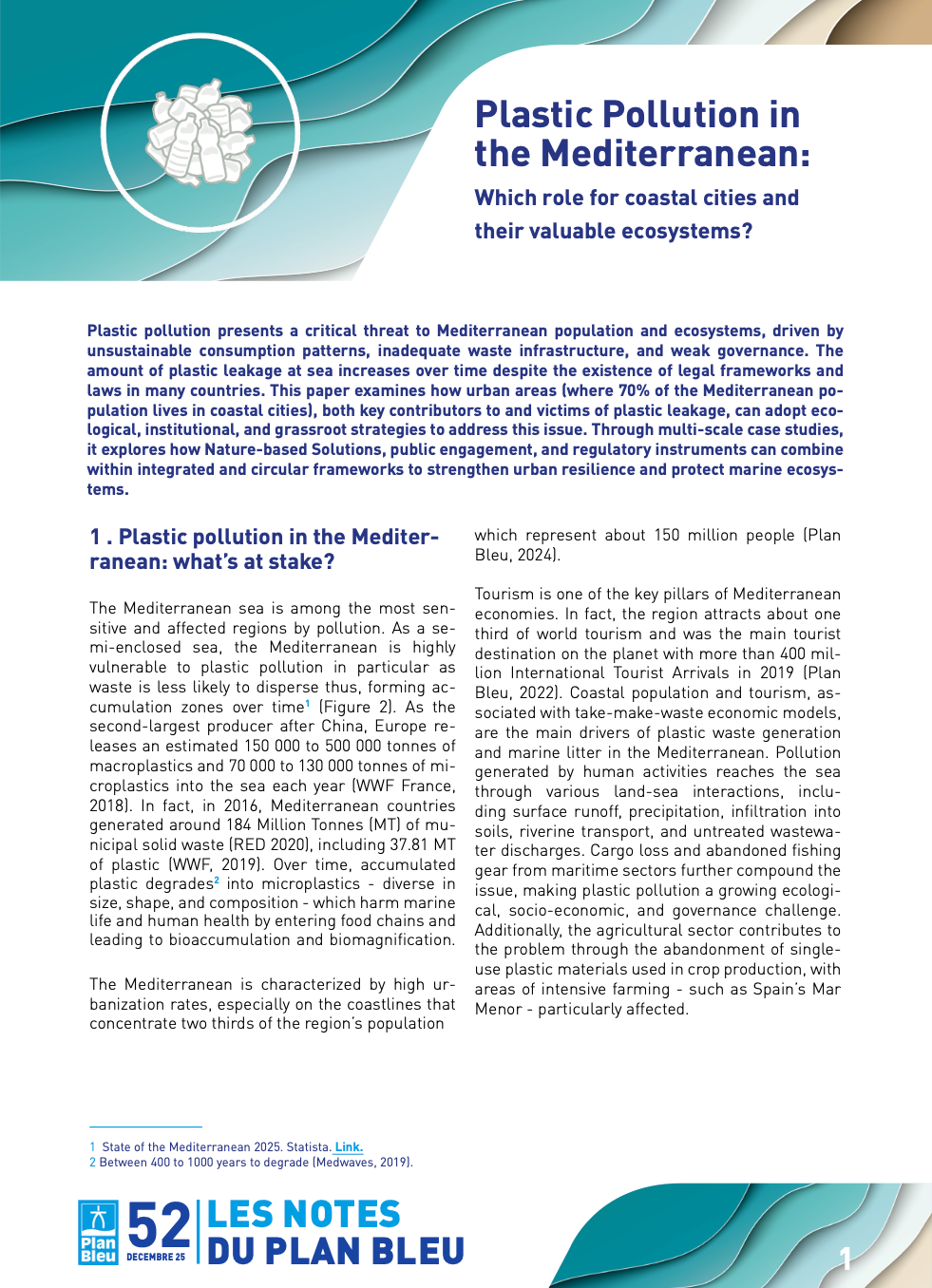
Plastic Pollution in the Mediterranean: Which Role for Coastal Cities and Their Valuable Ecosystems?
Plastic pollution poses a growing threat to Mediterranean populations and ecosystems, driven by unsustainable consumption patterns, insufficient waste management, and governance gaps. Despite existing legal frameworks in many countries, plastic leakage into the sea continues …
Read more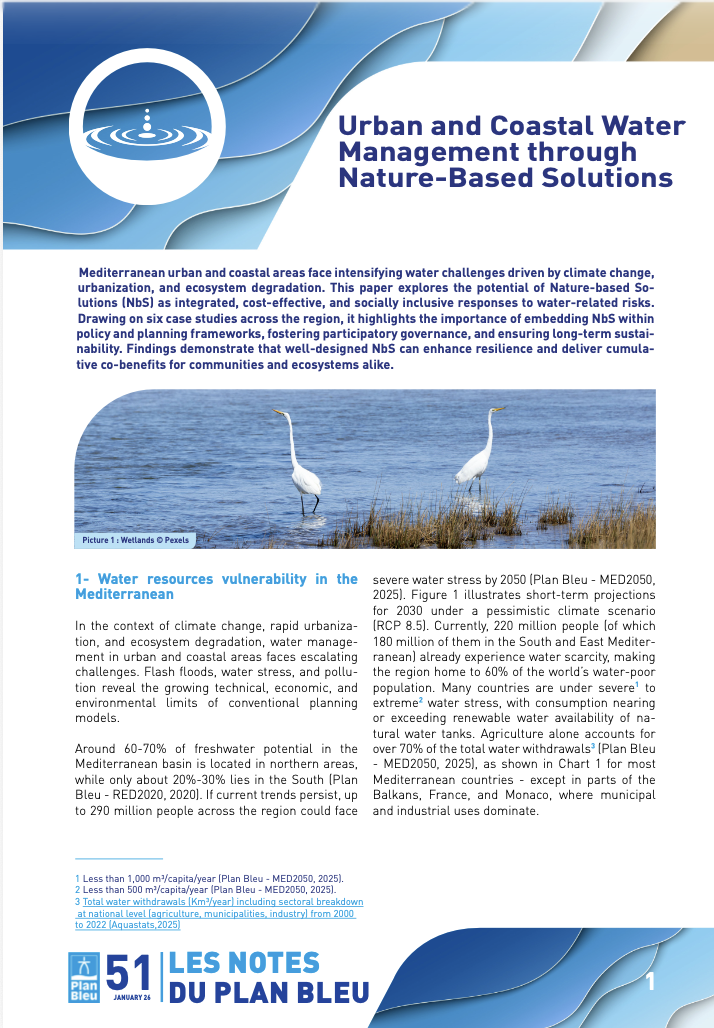
Urban and Coastal Water Management through Nature-Based Solutions
In response to growing water-related challenges in Mediterranean urban and coastal areas, this policy note examines the potential of Nature-Based Solutions (NbS) as integrated, sustainable, and inclusive approaches. Based on six regional case studies, it …
Read moreMediterranean Countries
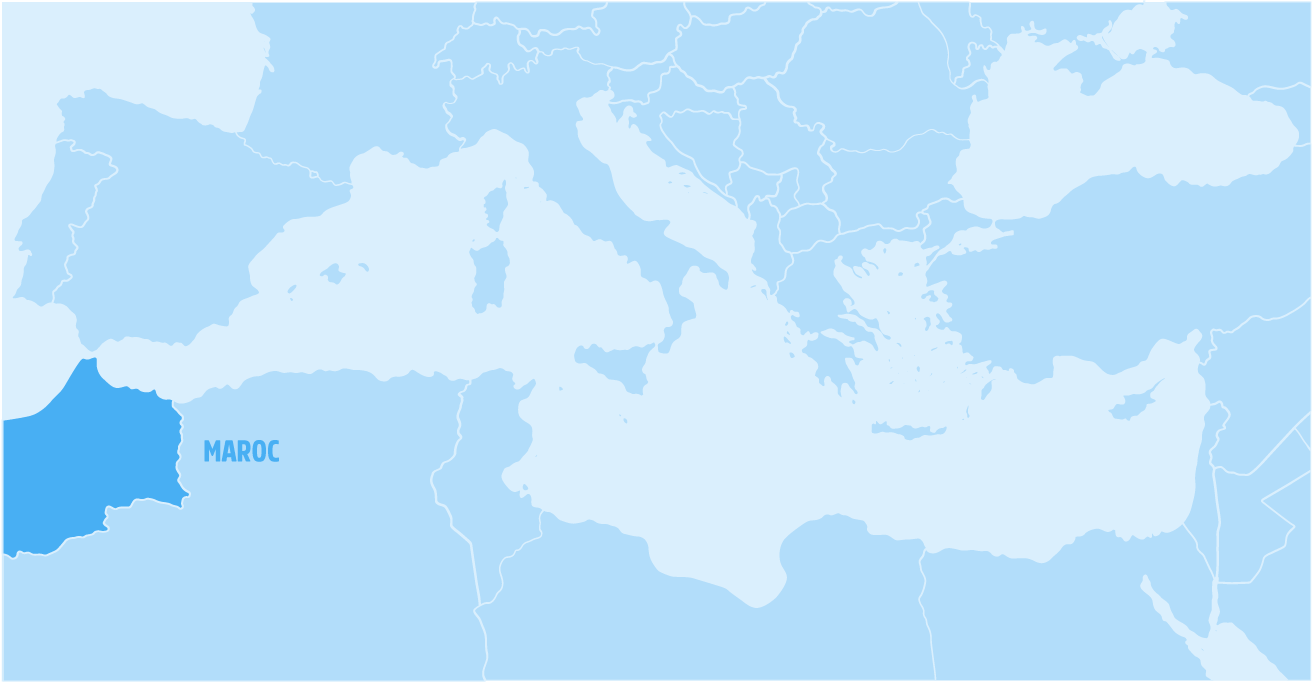
Albania
Algeria
Bosnia-Herzegovina
Croatia
Cyprus
Egypt
France
Greece
Israël
Italy
Lebanon
Libya
Malta
Monaco
Montenegro
Morocco
Slovenia
Spain
State of Palestine
Syria
Tunisia
Türkiye



-
Plan Bleu
Tour la Marseillaise
2 bis, Boulevard Euroméditerranée
Quai d'Arenc
13002 Marseille - France - [email protected]
- +33 (0)6 43 08 20 23
Le site Web utilise uniquement des cookies conformes au RGPD à des fins statistiques et pour améliorer la navigation. Pour en savoir plus, les utilisateurs sont invités à consulter la politique de confidentialité.
La consultation du site Web implique l'acceptation préalable des conditions générales d'utilisation, disponibles ICI.
J’accepte les conditions générales d’utilisation
